
Director
Known as a creator of astonishing images, stage director and visual artist Robert Wilson delivers a magnificent production of Mozart’s adaption of Handel’s Messias. Mozart was commissioned by Gottfried van Swieten to modernise the score fifty years after Handel’s popular composition (1742), mainly by arranging the wind parts and partially re-composing them. With Marc Minkowski a conductor has been engaged who understands perfectly how to combine baroque style with the tonal possibilities of an orchestra of the classical period like the Musiciens du Louvre. The excellent soloist quartet with Elena Tsallagova, Wiebke Lehmkuhl, Richard Croft and José Coca Loza merges perfectly into Wilson’s enormous flood of images.

Director
Un espectacular concierto en el sitio de la Ciudad Prohibida de Beijing. El concierto presenta a la renombrada Orquesta Sinfónica de Shanghái y al Maestro Long Yu, quienes interpretan Carmina Burana de Orff con Aida Garifullina, Toby Spence y Ludovic Tézier, antes de ser acompañados por Daniil Trifonov para el Concierto para piano No.2 de Rachmaninov y Mari Samuelsen para la pieza para violín de Max Richter ". Noviembre". Longitud 114 ′ (repertorio completo) / 71 ′ (Carmina Burana y Jasmine Flower Song) / 43 ′ (Concierto para piano y noviembre)

Director
Tosca, una de las óperas más representativas de Giacomo Puccini, llega ahora a los cines desde el Salzburg Easter Festival.
La soprano alemana Anja Harteros brilla en el papel protagonista de Floria Tosca, mientras Aleksandrs Antonenko retrata a Cavaradossi de manera contundente, y Ludovic Tézier se convierte en un excitante malvado Scarpia.

Director
Xerxes is one of Handel’s latest and most frequently performed operas, famous for its marvelous opening aria ‘Ombra mai fu’. At the centre of the confusing tragicomedy, very loosely based upon the life of Xerxes I of Persia, is a powerful and lovesick royal eccentric, King Xerxes. Rising opera star Gaëlle Arquez in the title role of Xerxes ‘scintillates with her nimble, luminous mezzo-soprano’, singing ‘irresistibly beautiful, impassioned, furious – but never mean’ (Frankfurter Rundschau). Frankfurt’s excellent Opera and Museum Orchester contributes ‘all sorts of refinements’ to this ‘musical smash hit’ (Deutschlandfunk) and ‘In Frankfurt Tilman Köhler ensures a three-hour short abundant and furious banquett … a great evening of opera’ (Deutschlandfunk).

Director
A study of a man's physical and mental limitations. In the 24 quite harsh and grueling fragments of the unfinished drama, a body and a mind are tested as far as they can be pushed before their owner goes over the edge. Is there just one thing that proves to be too much for Franz Woyzeck, or is it an accumulation of miseries and torments of a wretched existence? Woyzeck is perhaps not so much a bleak account of how miserable life can be as how much strength is required to deal with the daily vicissitudes of life and how delicate and fragile a balance the human psyche rests on.

Director
Salzburg Festival’s first-ever performance of Charles Gounod´s most famous and most performed opera! Internationally-acclaimed tenor Piotr Beczala triumphs in the title role as soul-selling philosopher Faust: “Piotr Beczala is a world-Faust” (Kurier) and “The well-deserved crown goes to a perfectly-cast Piotr Beczala” (Abendzeitung). Ildar Abdrazakov was “celebrated” (Broadway World) for his signature role as seductive and demonic Méphistophélès. Maria Agresta as convincingly innocent Marguerite struggling to resist temptation and to gain salvation: “She is fabulous!” (Süddeutsche Zeitung). “Spectacular and photogenic” staging (Frankfurter Allgemeine Zeitung) by award winning stage director and designer Reinhard von der Thannen. The Philharmonia Chor Wien and the Wiener Philharmoniker are performing under the baton of young Argentinian conductor Alejo Pérez.
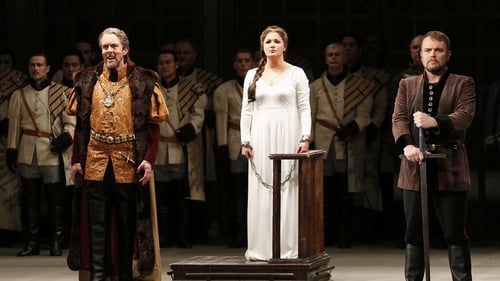
Director
A dream came true at Dresden's Semperoper in May 2016 when opera superstars Piotr Beczala and Anna Netrebko made their Wagner debuts as Lohengrin and Elsa, inspired to take on their new roles by Christian Thielmann, the Dresden Staatskapelle's principal conductor and one of the leading Wagner conductors of our day. Die Welt described the performance captured here as "musically one of the finest Lohengrins of all time". Contributing to the triumph are Evelyn Herlitzius's Ortrud. Tomasz Konieczny's Telramund, Georg Zeppenfeld's King Henry and the Dresden State Opera Chorus.
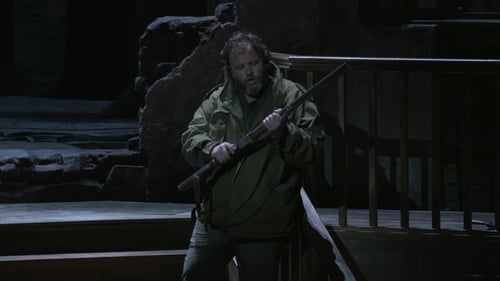
Director
Axel Köhler’s production of Der Freischütz at the Dresden State Opera was described by Die Presse as “a minor miracle in Dresden”. In the words of the Salzburger Nachrichten, Köhler “scored a bulleye” with his sombre and satanic interpretation of Weber’s Romantic opera about love, temptation, souls sold to the Devil, obsession andfaith. According to the Financial Times, Christian Thielemann and the Dresden Staatskapelle conjured up a sense of “mortal terror from the orchestra pit. […] Thielemann is in command of every detail. That makes for utterly gripping listening.”

Director
Any performance of Giuseppe Verdi’s Aida at La Scala, Milan, is guaranteed to be an experience – but, when it’s a new production, it becomes a major event, especially given the theatre’s notoriously critical audience. Legendary stage director Peter Stein succeeds in delivering a lucid production acclaimed in equal measure by the press and public: “a perfect coup de théâtre” (Giornale della musica). A “stellar cast” (La Stampa) contributes to the production’s success under the musical direction of Verdi specialist Zubin Mehta, who leads the orchestra in a “gorgeously colourful performance”, while “the entire ensemble is brilliant in its portrayal of the characters” (Die Presse).

Director
"Las Bodas De Fígaro" de Mozart es una ópera inolvidable sobre el amor, el deseo y el poder principal de la pasión incontrolable. Completando el exitoso ciclo Mozart / Da Ponte en el Festival de Salzburgo, el director Sven-Erik Bechtolf ubica la acción en una majestuosa casa de campo inglesa en la década de 1920. La famosa Filarmónica de Viena ofrece una velada excepcional de música en la ciudad natal de Mozart. “Todo en el espectáculo evocaba espontaneidad y naturalidad: una producción intrigantemente renovada del director Sven-Erik Bechtolf; Actuaciones ganadoras de actores convincentes; Y la interpretación flexible que el director Dan Ettinger extrajo de la Filarmónica de Viena ...

Director
Originally commissioned to celebrate the completion of the Suez Canal and the opening of Cairos new opera house, Verdis Egyptian epic Aida is here seen in a spectacular new staging in the Teatro Regio Torino by the Oscar-winning American film director William Friedkin, creator of such famous movies as The Exorcist and The French Connection. The cast features American soprano Kristin Lewis who has been heralded for her remarkable voice, which she uses with powerful dramatic instinct, and Georgian mezzo-soprano Anita Rachvelishvili, whose Amneris dominates the stage with her dark, rounded, irresistible voice and extraordinary stage presence. Gianandrea Noseda leading the Orchestra and Chorus Teatro Regio Torino received accolaides from all: he controls everything- orchestra, singers, chorus, dancers, acrobats- with an all-encompassing overview. He knows exactly when its time to linger over a timbre, a color, an expressive chord.

Director of Photography

Director
Rarely has a production of Verdi’s Otello been staged in such a prestigious location: the courtyard of the Palazzo Ducale in Venice! This special outdoor “event production” of the Teatro La Fenice takes place amidst genuine late-Gothic and Renaissance architecture highlighted by spectacular projections: “A set of singular fascination” (Il Corriere Musicale). Critics were full of praise for the musical performance, designating conductor Myung-Whun Chung as the “absolutely dominating force” of the performance (GB Opera). The lead role is sung by Gregory Kunde, who successfully interpreted both Verdi’s and Rossini’s Otello in one year, perhaps the first tenor ever to do so. He “reproduces every accent, every colour demanded by Verdi with sensibility and intelligence” (OperaClick).
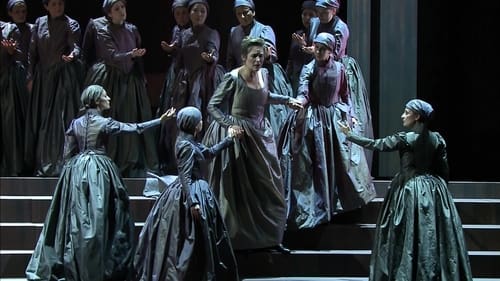
Director
Part of Tutto Verdi series - I due Foscari (2009) Parma

Director
La gran escala y la magnífica acústica de la arena romana en Verona son ideales para el espectáculo de la ópera egipcia de Verdi, presentada aquí en una puesta en escena que es fiel a la producción original de 1913, enmarcada por obeliscos y esfinges y llena de coros y bailarines. La soprano china Hui se ha ganado el reconocimiento internacional por su interpretación de la esclava homónima cuyo amor prohibido por el héroe de guerra Radamés (Marco Berti, el experimentado tenor Verdi) les causa la muerte a ambos.

Director

Director
Juan Diego Flórez takes on the lead role in this performance of Rossini's opera at the 2012 Pesaro Festival. Corradino (Flórez), a paranoid, misogynistic lord, is in the care of Aliprando (Nicola Alaimo), a doctor who is concerned that the poor spirits of his employer will damage his health. He duly attempts to make Corradino fall in love with the beautiful and self-willed Matilde (Olga Peretyatko). Will the plan succeed?

Director
Daniel Barenboim conducts the Staatskapelle Berlin in this production of Verdi's opera starring Anna Netrebko and Plácido Domingo. The Count Di Luna believes that his younger brother was murdered years before by a vengeful gypsy but still hopes that he may be alive. When he attempts to court the beautiful Leonora, he is enraged to discover that she has a lover – the troubadour, Manrico. Manrico and the Count duel, and afterwards Manrico reveals to Azucena, the woman he believes to be his mother, that when he had the opportunity to kill the Count he felt something holding him back.

Director
The recording took place in Teatro Farnese di Parma, a kind of "mini-Verona" stage, but under roof. Probably good acoustics. But that doesn't rescue this perfomance of the Requiem mass, the fault is mainly being the conductor's, Yuri Temirkanov. He doesn't at all seems inspired of this work and not interested in whats happens on stage, if judged by the video. Particularly, he seems unintersted in the choir. The tenor, Francesco Meli, delivers a very inspired Ingemisco, but the other soloists are probably affected by the conductor.
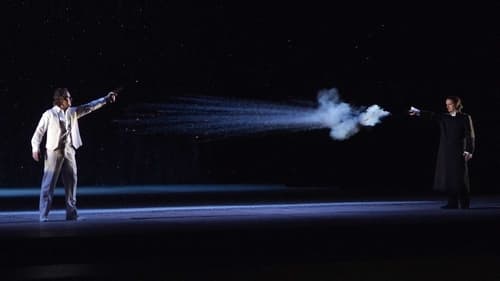
Director
In Trelinski's timeless production he leads a superb, first-class young cast headed by Artur Ruzinski as Onegin and Kristīne Opolais as Tatyana. Mariusz Trelinski, Polish filmmaker and theater director, has created a series of dream-like, surrealist tableaux of great suggestive beauty.

Director
C Majors Tutto Verdi project comes to one of Verdis most popular operas: Don Carlo. Based on Schiller's play of the same name, Don Carlos was written for the Paris Opéra in 1865-66 in the tradition of a French grand opera. Repeatedly revised and performed in Italian as Don Carlo, the opera is seen here in the version that Verdi prepared for Modena in 1886. In many respects, this is Verdi's most ambitious and most forward-looking work.

Director
Part of Tutto Verdi series - Alzira (2012) Dobbiaco. This is a concert performance. Alzira is an opera in a prologue and two acts by Giuseppe Verdi to an Italian libretto by Salvatore Cammarano, based on the play Alzire, ou les Américains by Voltaire. The first performance was at the Teatro San Carlo, Naples, on 12 August 1845.

Director
Part of Tutto Verdi series - Stiffelio (2012) Parma. 'Stiffelio' is an opera in three acts by Giuseppe Verdi, from an Italian libretto by Francesco Maria Piave. The origin of this was the novel “Le pasteur d’hommes”, by Émile Souvestre, which was published in 1838. This was adapted into the French play 'Le pasteur, ou L'évangile et le foyer' by Émile Souvestre and Eugène Bourgeois. That was in turn translated into Italian by Gaetano Vestri as 'Stifellius'; this formed the basis of Piave's libretto.

Director
Very nice set and costumes by Mauro Carosi. The procuction is well staged in the relatively small scene at Parma by Joseph Franconi Lee. Here's a performance that really works.Everything seems just right, but if you MUST have the top soloists (Pavarotti, Domingo...), look elsewhere. However, I think that the ones here (Susanna Branchini (Aida), Mariana Pentcheva (Amneris), Walter Fraccaro (Radames), Alberto Gazale (Amonasro), Carlo Malinverno (Il Re di Egitto) do a fantastic job. Also pluses for the ballet and the video production.
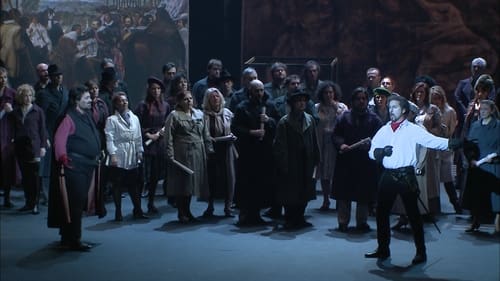
Director
Part of Tutto Verdi series - La battaglia di Legnano (2012) Trieste. 'La battaglia di Legnano' ('The Battle of Legnano') is an opera in four acts, with music by Giuseppe Verdi to an Italian-language libretto by Salvadore Cammarano. Most of the early Verdi operas are sort of rare for a reason. They do not rise to the heights of genius that his middle period and late period operas did. However, there are always some beautiful arias or choruses and most of them are great fun......sort of like bel canto on steroids! What I mean is that you can hear that he was coming from the bel canto tradition, but he liked to inject a lot more power into the characters and their music.

Director
I due Foscari was Verdi's sixth opera and based on Lord Byron's play The Two Foscari. Rich in intrigue, the plot tells of the final days of the famous Venetian doge, Francesco Foscari, and his illegal overthrow in 1457.
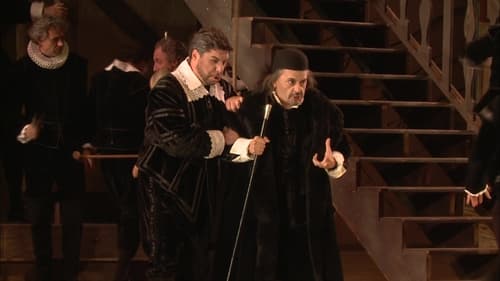
Director
Part of Tutto Verdi series - Falstaff (2011) Parma. 'Falstaff' is an opera in three acts by the Italian composer Giuseppe Verdi (1813–1901). The libretto was adapted by Arrigo Boito from Shakespeare's 'The Merry Wives of Windsor' and scenes from 'Henry IV, parts 1 and 2'. The work premiered on 9 February 1893 at La Scala, Milan

Director
Part of Tutto Verdi series - Un ballo in maschera (2011) Parma. Based on a Scribe libretto and begun as 'Gustavo III' set in Sweden, it became 'Una vendetta in dominò' set in Germany, and finally 'Un ballo', set not in Sweden but in Boston, Massachusetts during the colonial era. These changes were caused by a combination of censorship regulations in both Naples and Rome, as well as by the political situation in France in January 1858.

Director
The story of Cio-Cio-San, called Butterfly, a young Nagasaki geisha who, abandoned by her American lover after giving birth to their son, ultimately kills herself, continues to impress audiences today. In this outstandingly authentic and elegant production from the Sferisterio Opera Festival, Puccini's highly emotional music is expertly delivered. The superior cast is headed by Raffaella Angeletti, "certainly one of the best Butterflies of our time" (ForumOpera.com), who has performed this role in many Italian theatres, as well as in Madrid and at the Vienna Staatsoper.

Director
Director Stefano Poda set the action in the mid 19th century. There’s not a piece of furniture in the whole show. Just a lot of slabs which change position as the opera progresses. There were also a lot of non-singing characters in strange poses who popped up here and there. This sort of staging is not the usual for the Parma house which typically stays close to the traditional. There’s nothing wrong with the staging that a first rate musical effort couldn’t overcome. But that effort was not forthcoming.

Director
Part of Tutto Verdi series - Attila (2010) Parma. 'Attila' is an opera in a prologue and three acts by Giuseppe Verdi to an Italian libretto by Temistocle Solera, based on the 1809 play 'Attila, König der Hunnen' ('Attila, King of the Huns') by Zacharias Werner. The opera received its first performance at La Fenice in Venice on 17 March 1846.

Director
Part of Tutto Verdi series 'I vespri siciliani' ('The Sicilian Vespers') is a five-act Italian opera originally written in French for the Paris Opéra and translated into Italian shortly after its premiere in June 1855. Under its original title, 'Les vêpres siciliennes', the libretto was prepared by Eugène Scribe and Charles Duveyrier from their work 'Le duc d'Albe', which was written in 1838 and offered to Halévy and Donizetti before Verdi agreed to set it to music in 1854. The story is loosely based on a historical event, the Sicilian Vespers of 1282, using material drawn from the medieval Sicilian tract 'Lu rebellamentu di Sichilia'.

Director
Richard Wagner's dream of a Gesamkuntswerk becomes reality through La Fura dels Baus' visual fantasy and blending of video technology, lighting and props (often formed of human beings): Their 30 computer projections and organic structures built of athletic performers that recall Cirque du Soleil are predestined for Wagner's visionary expressive world.

Director
Richard Wagner's dream of a Gesamkuntswerk becomes reality through La Fura dels Baus' visual fantasy and blending of video technology, lighting and props (often formed of human beings): Their 30 computer projections and organic structures built of athletic performers that recall Cirque du Soleil are predestined for Wagner's visionary expressive world.

Director
It has been a long time since the events of Das Rheingold. Wotan has fathered nine Valkyries, warrior women who bring dead heroes to Valhalla (the castle of the Gods). Richard Wagner's dream of a Gesamkuntswerk becomes reality through La Fura dels Baus' visual fantasy and blending of video technology, lighting and props (often formed of human beings): Their 30 computer projections and organic structures built of athletic performers that recall Cirque du Soleil are predestined for Wagner's visionary expressive world.

Director
This recording of "Il Trovatore" was held in Parma in 2010. The production is minimalistic. The scenario reminds, vaguely, the lunar surface. In the background, in several scenes, there is a huge full moon, sometimes white, sometimes red - the effect is beautiful and suitable for the nocturnal atmosphere of this opera. Few objects in the scene, including a big horse and giant candles. The costume indicates, directly, who is who: soldiers, nuns, gypsies. Regarding the musical aspects: excellent participation of choir and orchestra. The conductor is the seasoned Yuri Temirkanov. He keeps the orchestra under control (though there is one or two moments of disagreement with the singers), with some pleasant surprises.

Director
Part of Tutto Verdi series - Simon Boccanegra (2010) Parma. Revised version (1881). 'Simon Boccanegra' is an opera with a prologue and three acts by Giuseppe Verdi to an Italian libretto by Francesco Maria Piave, based on the play 'Simón Bocanegra' (1843) by Antonio García Gutiérrez, whose play 'El trovador' had been the basis for Verdi's 1853 opera, 'Il trovatore'. Simon Boccanegra was first performed at Teatro La Fenice in Venice on 12 March 1857

Director
In the words of the prestigious German weekly 'Die Zeit,' the stage production of Wagner's 'Rheingold' and 'Walküre' by La Fura dels Baus 'quite possibly shows us the path that musical theater will be taking in the future.' There's no doubt about it: the Catalan city of Valencia is setting new accents in 21st-century opera not only with its spectacular new theater designed by Santiago Calatrava, but also with its visually transfixing production of Wagner's 'Ring' staged by Carlus Padrissa and his theater group La Fura dels Baus.

Director
Part of Tutto Verdi series - Nabucco (2009) Parma. NABUCCO was Verdi’s third work for the stage and proved his first great success when performed in 1842. It deals with the Hebrew’s attempts to break free from the yoke of their Babylonian oppressors and is nowadays numbered among Verdi’s most popular works, not least on account of its famous Chorus of Hebrew Slaves, which has one of the best-loved melodies in the whole history of opera.

Director
I Lombardi alla prima crociata (The Lombards on the First Crusade) was Verdi’s fourth opera and received its first performance at La Scala, Milan, in February 1843. The grandiloquent subject matter is fleshed-out with broad-brushed musical and dramatic effects and lavish choral scenes created a correspondingly impressive impact. A great success in Milan, it spread to the rest of Europe within a matter of only a few years.
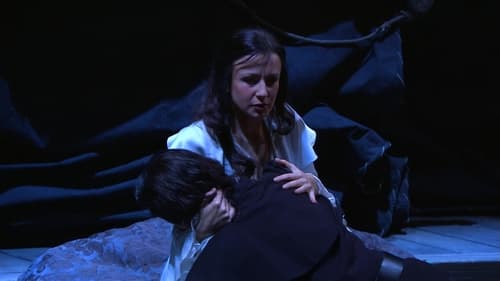
Director
The caption on the DVD sleeve reads “This Is how Verdi should be played!” and I could not agree more. The trio of principals: Ribeiro, Lungu, and Dalla Benetta , offer youthful exhuberance and intensity, good looks and glorious voices. The rest of the cast is equally good. Superb conductor, traditional production, great staging. Anf of course, Verdi’s exquisite music. It has renovated my faith in the totality of the Verdi canon, not only its most performed titles.
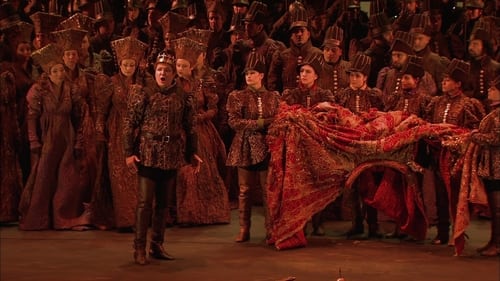
Director
This work predates Thchaikowsly’s for almost 4 years, and it is base don the Schiller play I have previously criticized for its lack of historical accuracy. It is essentially focused on three major voices, soprano, tenor and baritone, with a basso to spice it up. New Yorker Evan Bowers may not be a matinee idol, but he sails into the role with a bright, focused lyrico spinto tenor voice. Renato Bruson was 72 years old in 2008, when he took this role (first sung by him in1989) and it shows, with quite a wobble on many passages; yet his voice commands the stage and rises majestically in the ensembles. And then, Bulgarian Svetla Vassileva, who is not burned at the stake, as in “Maid”, but dies heroically in battle.

Director
Puccini’s operas are among the most beloved and best-known works in the classical repertoire, but Edgar may be unknown even to aficionados, at least as it is presented here. This original four-act version of Edgar, first performed in 1889, was believed lost for over a century when Puccini’s granddaughter Simonetta discovered the score fully intact in 2008. In addition to the third act’s funeral music, which Arturo Toscanini conducted at Puccini’s funeral in 1924, listeners may recognize the duet from the now-restored fourth act, cut by Puccini in subsequent revisions of the work: it bears more than a passing similarity to the third-act duet in Tosca.
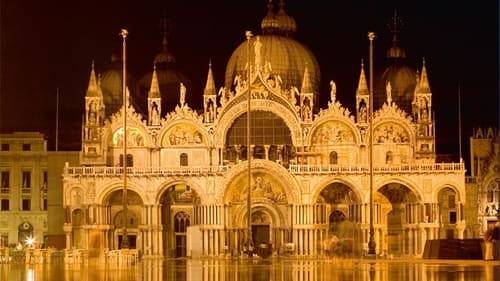
Director
The production itself is quite beautiful: recorded in the Basilica di San Marco in Venice in November 2007, it highlights the cathedral's splendor, the reverent audience, the soloists, orchestra and chorus with near-perfect cinematography. The soundtrack is also acceptable, which may have been quite a task to achieve, given the Basilica's over-reverberant acoustics. Alas, the performance itself does not rise to the occasion. Despite the occasional minor insecurity in ensemble and a visible lack of joy, the Symphonica Toscanini musicians play well, the Coro del Maggio Musicale Fiorentino members sing equally well, and the soloists are more than adequate, almost tangibly trying to excel.

Director
Part of Tutto Verdi series - Oberto (2007) Parma. Oberto was the first of Verdi’s operas to be staged and was heard for the first time at La Scala, Milan, in November 1839. As a young and unknown composer, Verdi was subject to the rules then governing the opera industry in Italy. Even so, there are already many scenes in this early work that reveal unmistakable signs of the composer’s individual style.
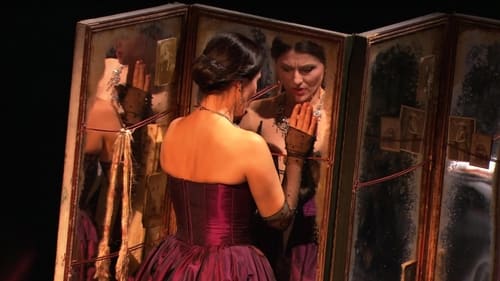
Director
Part of Tutto Verdi series - La Traviata (2007) Parma. 'La traviata' ('The Fallen Woman') is an opera in three acts by Giuseppe Verdi set to an Italian libretto by Francesco Maria Piave. It is based on 'La dame aux Camélias' (1852), a play adapted from the novel by Alexandre Dumas, fils. The opera was originally titled 'Violetta', after the main character. It was first performed on 6 March 1853 at the La Fenice opera house in Venice. Piave and Verdi wanted to follow Dumas in giving the opera a contemporary setting, but the authorities at La Fenice insisted that it be set in the past, "c. 1700". It was not until the 1880s that the composer and librettist's original wishes were carried out and "realistic" productions were staged.

Director
Live performance from the Teatro Comunale di Modena

Director

Director
Meyerbeer opera with Emmanuel Villaume conducting the Orchestra and Chorus of Teatro La Fenice di Venezia directed by Pier Lui.
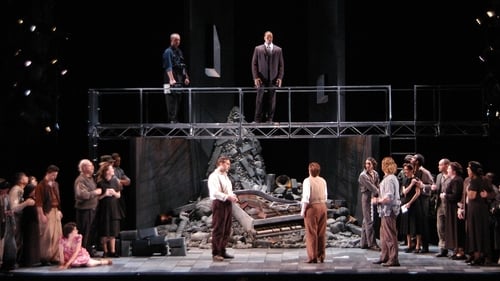
Director
Two years prior to the opening scene, the nobleman Florestan has exposed or attempted to expose certain crimes of the nobleman Pizarro. In revenge, Pizarro has secretly imprisoned Florestan in the prison over which Pizarro is governor. The jailer of the prison, Rocco, has a daughter, Marzelline, and a servant (or assistant), Jaquino. Florestan's wife, Leonore, came to Rocco's door dressed as a boy seeking employment, and Rocco hired her. On orders, Rocco has been giving Florestan diminishing rations until he is nearly starved to death. Place: A Spanish state prison, a few miles from Seville Time: Late 18th century

Director
The love between Sita, the priestess of the temple of Indra, and an unknown stranger, who is actually Alim the King of Lahore, is hindered by Scindia who wants to take the throne and to marry Sita. When Scindia discovers the lover's true identity, he accuses him before the high priest Timour, who condemnsns him to go into battle against the muslims. In the battle Alim is defeated, and, seriouslyy wounded, returns to Lahore where he ides in the arms of his beloved Sita. Having g risen in to the Hindu paradise and been reincarnated aim turns to Lahore just in time to witness the usurper's splendid coronation and to reveal Scindia's crimes to the entire populace, In the last act the two lovers take refuge in the temple of Indra to escape from Scindia: Sita takes her own life with a dagger thus provoking Alim's death. The two lovers will be together in the hereafter.

Director
Maometto II (or Maometto secondo) is an 1820 opera in two acts by Gioachino Rossini to an Italian libretto by Cesare della Valle. Set in the 1470s during a time of war between the Turks and Venetians, the work was commissioned by the Teatro di San Carlo in Naples. Della Valle based his libretto on his earlier play Anna Erizo. The name of the title character, Maometto II, refers to the real-life Ottoman Sultan and conqueror of Constantinople Mehmed II, who lived from 1432 to 1481.

Director
Live from the Arena di Verona 2005

Director
A village hires a priestess to pray for the safety of their pearl fishermen, but long lost love gets in the way.

Director
In recent years not only music festivals but also important opera theatres have turned their attention towards the neglected masterpieces of the lyrical repertoire. Thus also Venice's Teatro La Fenice, in a commendable effort, staged this Pia de' Tolomei by Donizetti, with some of the best singers available today for this type of repertoire. Initial response to this opera, which was performed for the first time in 1837, was ambiguous, so much so that Donizetti re-worked it as many as three times. The version here recorded is that of the critical edition recently published by Ricordi, with the tragic finale originally conceived by the composer. The listener will undoubtedly wonder, once more, at Donizetti's wealth of melodic inspiration, especially when it comes to the character of Pia, wonderfully interpreted, here, by Patrizia Ciofi.

Director
The title role, in this excellent production, is sung by an Eva Mei in great vocal form, who gives an interpretation of extraordinary depth. Beside her, the famous bass-baritone Michele Pertusi, as Athanaël, shows once again his unquestionable style. On the podium is Marcello Viotti, music director of the Venetian theatre. The story of the conversion of the beautiful courtesan, and the clash between spirituality and sensuality have been portrayed brilliantly by Pier Luigi Pizzi, one of today’s most talented opera directors. The visual quality of this production is indeed one of its strong points, and the DVD recording will not fail to fascinate the viewer.

Director
The opera by Georg Friedrich Handel.
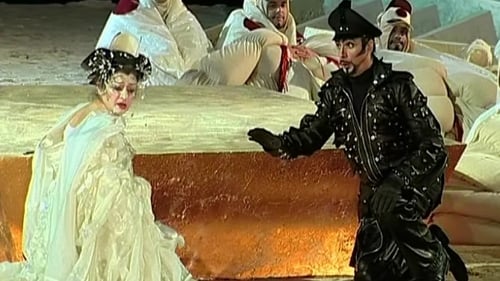
Director
Japan, early twentieth century. U.S. Navy Lieutenant B.F. Pinkerton inspects the house he has leased from a marriage broker. The broker, Goro, has procured him three servants and a geisha wife, Cio-Cio-San, known as Madama Butterfly. He is enchanted with the fragile Cio-Cio-San. Cio-Cio-San is heard in the distance joyously singing of her wedding. In a quiet moment, Cio-Cio-San shows her bridegroom her few earthly treasures and tells him of her intention to embrace his Christian faith. The Imperial Commissioner performs the wedding ceremony, and the guests toast the couple. The celebration is interrupted by Cio-Cio-San's uncle, a Buddhist priest, who bursts in, cursing the girl for having renounced her ancestors' religion. Alone with Cio-Cio-San in the moonlit garden, her husband dries her tears, and she joins him in singing of their love.


















































